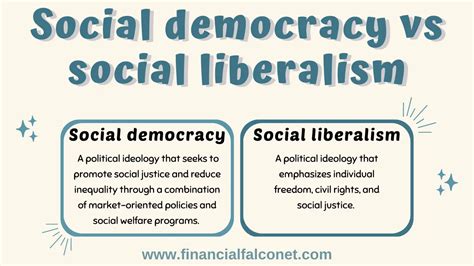Introduction

Democracy and liberalism are two political systems that have shaped the modern world. While they share some common values, such as individual rights and the rule of law, they diverge in significant ways when it comes to the role of government, the distribution of power, and the nature of citizenship. This article examines the key differences between democracy and liberalism, their historical evolution, and their implications for modern societies.
Historical Evolution
Democracy
The concept of democracy emerged in ancient Greece as a form of government in which citizens had the right to participate in decision-making. It was popularized by philosophers such as Plato and Aristotle, who argued that democracy was the most just and equitable form of government.
Over time, the concept of democracy evolved, with different countries and regions adopting varying models. The United States Constitution, for example, established a representative democracy in which citizens elect representatives to make decisions on their behalf.
Liberalism
The origins of liberalism lie in the Enlightenment period of the 18th century. Liberal philosophers such as John Locke and Jean-Jacques Rousseau emphasized the importance of individual freedom, property rights, and limited government.
Liberalism gained prominence in the 19th century, as industrialization and urbanization led to the rise of a middle class that sought to limit the power of the state. It became the dominant political ideology in Europe and North America.
Key Differences
1. Role of Government
- Democracy: Government is based on the will of the majority, as expressed through elections.
- Liberalism: Government is limited in its scope and power, with the goal of protecting individual rights and freedoms.
2. Distribution of Power
- Democracy: Power is distributed among the people and their representatives.
- Liberalism: Power is分散集中分散 (distributed) among different branches of government and institutions, with checks and balances to prevent any one entity from becoming too powerful.
3. Nature of Citizenship
- Democracy: Citizenship is defined by participation in decision-making and the ability to influence the government.
- Liberalism: Citizenship is based on individual rights and freedoms, regardless of involvement in government.
4. Economic System
- Democracy: Can coexist with various economic systems, including capitalism, socialism, and mixed economies.
- Liberalism: Typically associated with free-market capitalism and the belief that government should limit its intervention in the economy.
Implications for Modern Societies
The differences between democracy and liberalism have significant implications for the way that modern societies are governed.
Democratic Societies
- Tend to prioritize collective decision-making and the interests of the majority.
- May be more prone to populism and mob rule.
- Can provide a greater voice to marginalized groups.
Liberal Societies
- Place a high value on individual rights and freedoms.
- Emphasize limited government and the rule of law.
- May foster a more prosperous and innovative economy.
Case Studies
United States
The United States is a representative democracy with a strong tradition of individual rights. It has a mixed economy that combines free-market capitalism with government regulation.
United Kingdom
The United Kingdom is a constitutional monarchy with a parliamentary system. It has a long history of liberalism and has developed a strong welfare state.
France
France is a semi-presidential republic with a long history of democratic revolutions. It has a strong centralized government and a mixed economy.
Table: Key Differences between Democracy and Liberalism
| Feature | Democracy | Liberalism |
|---|---|---|
| Role of Government | Based on majority will | Limited in scope and power |
| Distribution of Power | Distributed among people and representatives | Dispersed among branches of government |
| Nature of Citizenship | Participation in decision-making | Individual rights and freedoms |
| Economic System | Can coexist with various systems | Typically associated with free-market capitalism |
Table: Implications of Democracy and Liberalism for Modern Societies
| Feature | Democratic Societies | Liberal Societies |
|---|---|---|
| Collective Decision-Making | Prioritized | Less emphasized |
| Individual Rights | Protected but subject to majority rule | Highly valued |
| Government Intervention | May be more extensive | Typically limited |
| Economic Prosperity | Can vary based on specific policies | Generally fostered |
Strategies for Bridging the Gap
Despite their differences, democracy and liberalism share a common goal of creating a just and equitable society. To bridge the gap between these two ideals, it is essential to:
- Promote civic education and voter participation.
- Establish strong institutions and checks and balances.
- Protect minority rights and freedoms.
- Foster a culture of dialogue and tolerance.
Tips and Tricks
- Encourage citizens to engage in public discourse and participate in decision-making.
- Support organizations that promote the principles of democracy and liberalism.
- Use social media and technology to amplify marginalized voices.
- Promote cross-cultural exchange and understanding.
Conclusion
Democracy and liberalism are two complex and multifaceted political systems that have shaped the modern world. While they differ in their approach to government, the distribution of power, and the nature of citizenship, they share a common commitment to individual rights and the rule of law. Understanding these differences and their implications is essential for fostering informed and engaged citizens who can contribute to the development of democratic and liberal societies.
